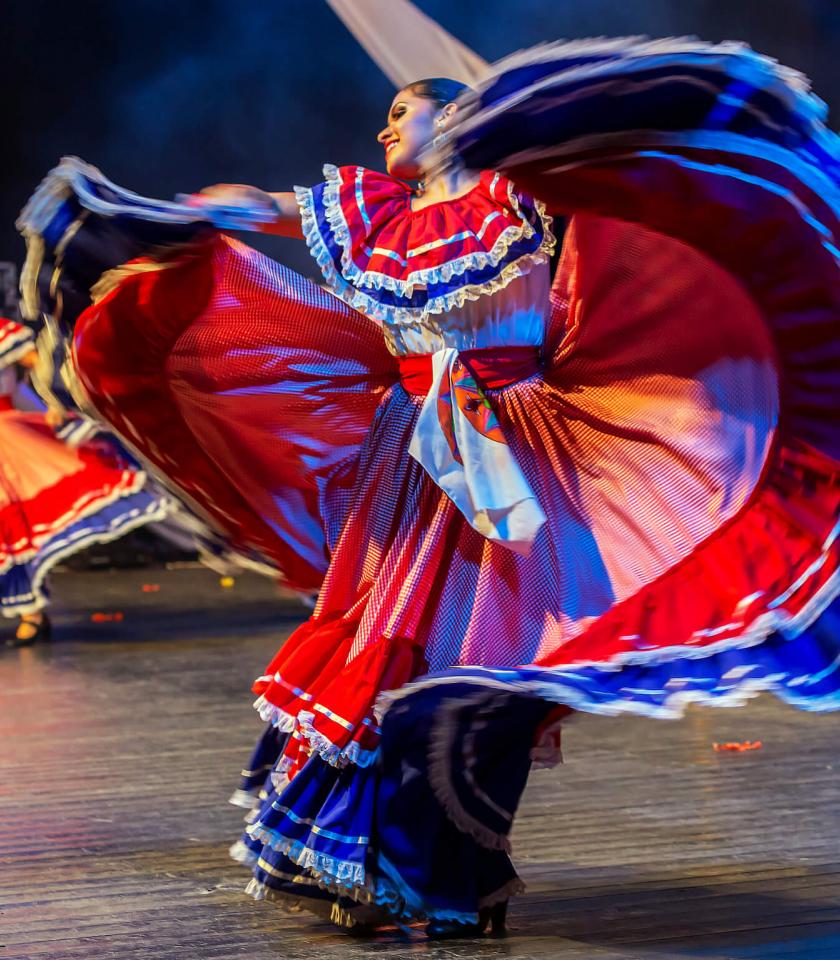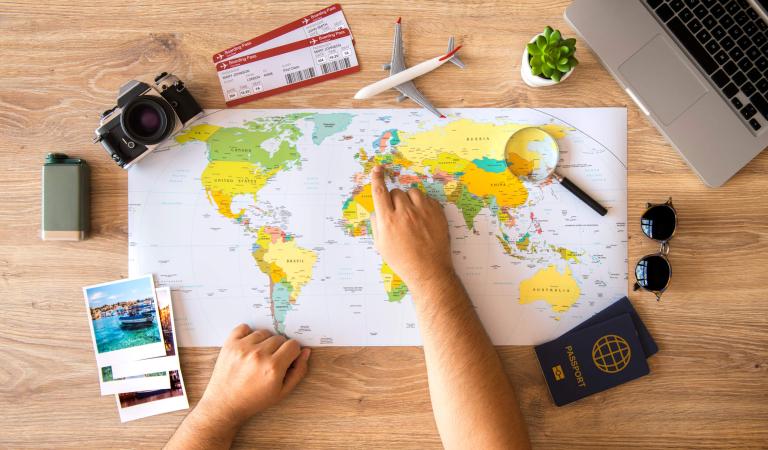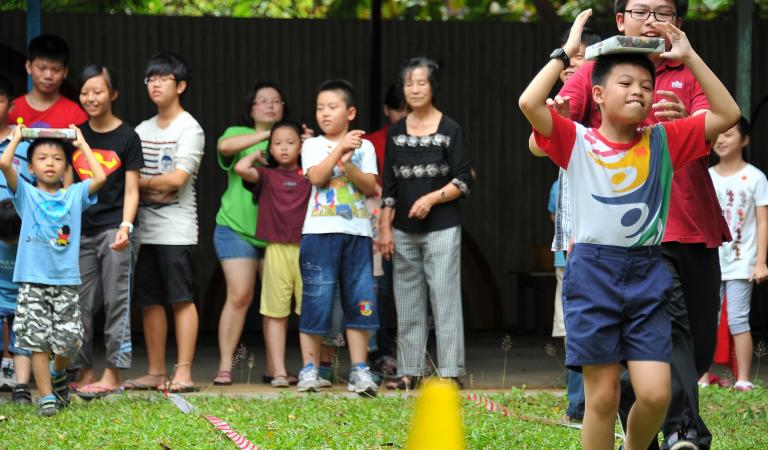If you’re a musician or are just really passionate about live music, teaching English as a foreign language can be a great way to expand your knowledge and cultural awareness of music around the world. From Bossa Nova in Brazil, to Opera in Vienna, TEFL offers a variety of opportunities to experience music!
Imagine the sound of Rio de Janeiro, what do you hear?
My guess is that you hear the Bossa Nova rhythm of Garota de Ipanema, with sunset and waves on the Ipanema beach.
How about Sevilla?
The angular eastern chords of a flamenco guitar accompanying firecracker heels on a stone floored taberna.
India?
Ravi Shankar sitting on a long boat in Kashmir playing a sitar.
Music gives a place identity like its landscape, architecture, food, and so on. It’s no surprise that the modern sound of Rio and its favelas is much harder and urban; Baile Funk is a long way from the liberal middle-class idealism that came with Bossa Nova. Further up north in Brazil, in the fishing towns of Bahia, you can hear Dorival Caymmi’s songs of fishermen who have two lovers - “um bem na terra, um bem no mar’ - one on land and one at sea. Across the Atlantic, Lisbon’s most famous fado singer, Amalia, sings to her lover’s dark ship, “barco negro”, dancing in the light.
For musicians and music fans, TEFL offers the world of opportunity to make a living abroad and, with that, to learn languages, meet people and discover music from other cultures. As a musician I can testify to this, as in my early 20s, I travelled to Cordoba in Andalusia, with dreams of mastering flamenco guitar. Teaching English abroad was the perfect gateway as I spent some of the best years sat practising my guitar by morning, teaching in the classroom by afternoon and then exploring the tabernas by evening, trying to grasp some of this illusive world.
Before you go
If developing your skills or interests in music is the reason you are getting into TEFL, it helps to do a bit of research first as to where you want to teach. Bigger capital cities inevitably have a lot more going on, but more importantly choose a city that will have the scene for the music you are interested in.
Sevilla or Cordoba are great for flamenco. If you want jazz you should go to urban areas like Milan, Berlin, Barcelona or Valencia. Valencia has a department of Berkley School of Music so the has lots of top-quality Californian jazzers studying there. More students in conservatories and schools means and more and better jazz bars in town, more customers, a bit of money for musicians to make by performing, more going on for you to get into. In Asia, Tokyo has a reputation for a strong jazz scene with lots of great bars.
If Opera is your thing, then Vienna, Budapest or Bucharest is where you can see world class performances for a little over £5.
Once you arrive
So you have moved to you new home, it’s the start of the academic year and you want to throw yourself in. First, try to attend group classes in your area of interest be it music, dance, art or even sports. This is a great way to study, meet people and will give you far more language immersion than going to language classes. What’s more, as you meet people you will get invited into other networks and groups of like-minded people, practise your passion and build up a broader social circle in addition to your expat and teaching buddies.
But there’s a catch
However, you are there to be a teacher. TEFL timetables sometimes focus on evening classes which has its pros and cons for musicians. The great things about evening timetables is you have the whole morning to get on with your practice routine. Morning practise is great as you are not tired from work or having to compromise on a social life after classes. The catch is that is if you want to join classes, groups, jam sessions or dance classes, often these will clash with your classes at school.
If you are keen, do your research into the classes you want to attend and find a flexible school and boss, maybe you can find an opportunity to work a few mornings or Saturday in exchange for an early finish. A bit of planning goes a long way. For me, working a couple of morning shifts and getting some early finishes allowed me to attend group classes at a local pena (social club). Through this I met friends who provided my route into the flamenco scene.
Private music classes are another option to study your field. Teachers vary in their ability to teach, and the best musician isn’t always the best teacher. To find a good teacher, it is worth asking around. Ask other teachers if they know other musicians, and then they may have tips for you. Word should get round of your interests and you’ll start to meet others with the same interests.
If you don’t want classes, one of the most social options to meet musicians is through open-mic nights. They are natural hangouts for musicians and are generally sociable, especially if you perform, you’ll be chatting with the other performers before you know it.
Be patient
When you first arrive and start to meet people in your scene, take some lessons, go to concerts, it will all seem exciting, new, and people will be friendly. But after a while, maybe your language skills will start to frustrate you. Or winter arrives and you feel like an outsider in the social scene. You’re slow on the jokes and it’s incredibly annoying when you can’t make jokes in a foreign language!
Life can become stressful when you spend time around others from a different culture. Some evenings will be frustrating, and musicians aren’t all friendly – some are competitive, and you may get the cold shoulder. The Flamenco scene was full of this; there were some of the most welcoming people I’ve met, and then there are those people who will always look down on you as an outsider, a guiri. But what can you do? Just wait it out, a good experience is always around the corner.
Music in class
Musical skills can be a great addition to your students in the classroom. You can use rhythms to help elicit language. Work on rhyming. Bring you instrument into the classroom and get students singing. Most of the music people encounter these days is through an electronic device. People very rarely see live music and much less so performed by professionals on a stage. Yet often the songs that make the biggest impression are we one we see someone perform live. Bring your talent to the classroom, there are lots of great resources on the web to inspire your classes.
Make the most of the experience
One thing playing guitar in Andalusia made me realise, was how exceptionally high the standard was there, how challenging flamenco is, and all this can make you feel like you’re not getting anywhere. However, music is not about being the best in the room. I discovered this in a pena, south of the Guadalquivir river, in the unglamorous part of Cordoba.
I had watched my guitar teacher perform on the humblest of stages, beneath the obligatory picture of the weeping virgin Mary. The average age of the audience must have been 65, I was definitely the only guiri in the room. After the concert I was invited to stay some paella and strong Andalusian sherry with the locals. By now the locals started taking it in turns to sing. An old poet dressed up in suit a tie read verses about the beauty of Cordoba.
Eventually word got around that I played a bit. I did play - but I’d never accompanied singers. I was sent up to the stage with a singer. Que tocas? What do you play? They asked. Por soleares I suggested, knowing that solares is a slow one, easy to follow. I accompanied, with nervous jittery fingers, but holding the chords together. There was some applause, the singer didn’t castigate me, and before I knew it, they were asking Que mas sabes? What else do you know?






